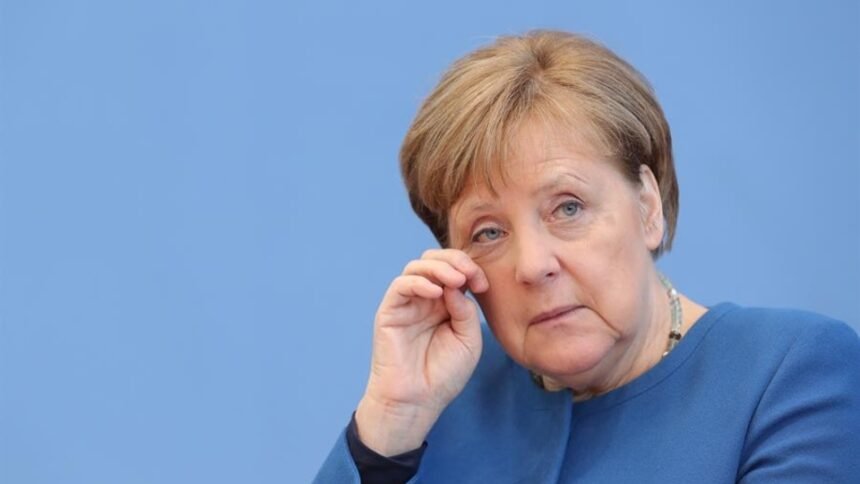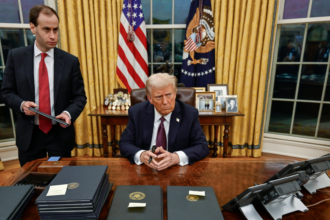La canciller alemana Angela Merkel reafirmó su compromiso con la política de puertas abiertas hacia los refugiados, subrayando la responsabilidad humanitaria de Alemania. A pesar de la creciente presión política, Merkel se opone a la colaboración con partidos de extrema derecha, defendiendo la necesidad de una respuesta europea unificada a la migración.German Chancellor Angela Merkel has reaffirmed her commitment to maintaining Germany’s open-door policy towards refugees, emphasizing that the country must uphold its humanitarian responsibilities despite increasing political pressure.
Merkel’s Stance on Refugee Policy
In a recent address to the Bundestag, Merkel defended her government’s decision to accept a large influx of refugees since 2015. She stated that turning away those in need is not an option for Germany, given its historical and moral obligations.
“Germany must remain a country that offers refuge to those fleeing war and persecution,” Merkel declared. “Closing our borders is not a solution to the challenges we face.”
Challenges From Within
Merkel’s affirmation comes amid growing tensions within her own coalition government and the rise of the Alternative for Germany (AfD), a far-right political party that has gained support by campaigning against immigration.
The AfD’s presence in the Bundestag marks the first time in decades that a far-right party has held seats at the federal level. Their calls for stricter immigration controls and critiques of Merkel’s policies have intensified the national debate on migration and integration.
Rejection of Far-Right Collaboration
Merkel has unequivocally ruled out any cooperation with the AfD. She asserted that collaborating with parties that promote xenophobia and undermine democratic values is incompatible with her government’s principles.
“Our commitment to democracy and human rights leaves no room for alliance with those who seek to divide our society,” Merkel stated.
Political Implications
The Chancellor’s stance has significant implications for Germany’s political landscape. By rejecting collaboration with the AfD, Merkel reinforces a cordon sanitaire around the far-right, but it also complicates coalition-building in a fragmented parliament.
As traditional parties lose ground, questions arise about how Germany will navigate its political future. Can mainstream parties address the concerns of voters drawn to the AfD without compromising their values?
The European Context
Germany’s approach to refugees is also pivotal within the European Union. Merkel has called for a unified European response to migration, advocating for shared responsibility among member states.
However, some EU countries have resisted accepting refugees, leading to divisions within the bloc. How will Germany’s policies influence the broader European strategy on migration?
Humanitarian Responsibility
Merkel reminded lawmakers of the humanitarian crises driving people to seek asylum. She emphasized the need to address the root causes of migration, such as conflict and poverty in regions like the Middle East and Africa.
“Only by tackling the issues at their source can we hope to manage migration effectively,” she said.
Economic Considerations
The Chancellor also highlighted the economic contributions of refugees and immigrants. She pointed out that integration into the workforce can help mitigate demographic challenges posed by an aging population.
“Immigration, when managed properly, can be a boon to our economy,” Merkel argued. “We must invest in education and training to ensure successful integration.”
Public Opinion
Public sentiment in Germany remains divided. While many support Merkel’s policies and the humanitarian imperative, others express concerns about security, cultural integration, and resource allocation.
Recent polls indicate fluctuating levels of support for the Chancellor’s approach. How will public opinion shape future policy decisions?
Looking Ahead
As Merkel’s tenure draws to a close, her legacy on refugee policy is a subject of intense discussion. The incoming leadership will face the challenge of balancing humanitarian values with political pragmatism.
Will Germany continue on the path set by Merkel, or will new leaders chart a different course?
International Reactions
Global reactions to Germany’s policies vary. Some praise the country’s commitment to humanitarian principles, while others criticize it as overly idealistic.
International organizations like the United Nations have commended Germany’s efforts, but tensions remain with countries opposed to accepting refugees.
Integration Efforts
Merkel emphasized the importance of integration programs to facilitate refugees’ transition into German society. Language courses, education, and vocational training are prioritized to help newcomers contribute effectively.
“Integration is a two-way street,” Merkel noted. “It’s about newcomers learning our language and customs, and our society being open to diversity.”
Security Concerns
Critics of Merkel’s policy often cite security concerns, suggesting that the influx of refugees could lead to increased risks. The government has responded by enhancing vetting processes and coordinating with international agencies.
Merkel assured that security remains a top priority. “We are vigilant in protecting our citizens while upholding our humanitarian duties,” she affirmed.
Role of Civil Society
Civil society organizations in Germany play a crucial role in supporting refugees. Numerous volunteer initiatives have emerged to provide assistance with housing, education, and community integration.
These efforts demonstrate a willingness among many Germans to welcome and support those in need. How might these grassroots movements influence government policies?
Global Migration Trends
The challenges faced by Germany reflect broader global migration trends. Conflicts, climate change, and economic disparities continue to drive people to seek better lives elsewhere.
What strategies can the international community adopt to address the causes of mass migration and support affected populations?
Ongoing Debates
As discussions continue in Germany, stakeholders from various sectors contribute to the dialogue on refugee policy. Political leaders, non-governmental organizations, economists, and citizens alike are engaged in shaping the nation’s approach.
The outcomes of these debates will have lasting impacts on Germany’s social fabric and its role on the global stage.
The Path Forward
Germany stands at a crossroads, facing complex decisions about identity, responsibility, and future direction. How the country navigates these challenges may serve as a blueprint for others grappling with similar issues.
As Merkel’s era comes to an end, the world watches to see how Germany will balance compassion with pragmatism in its refugee policies.








